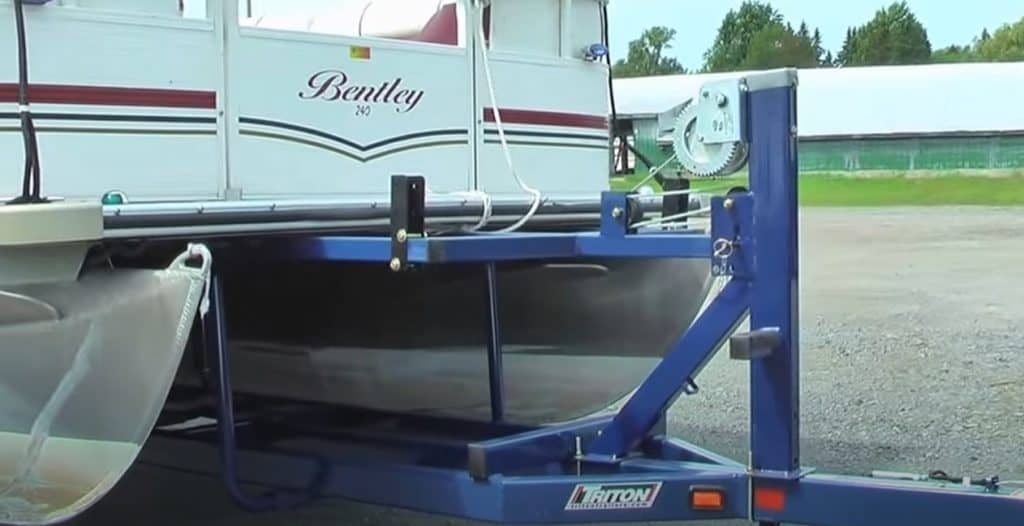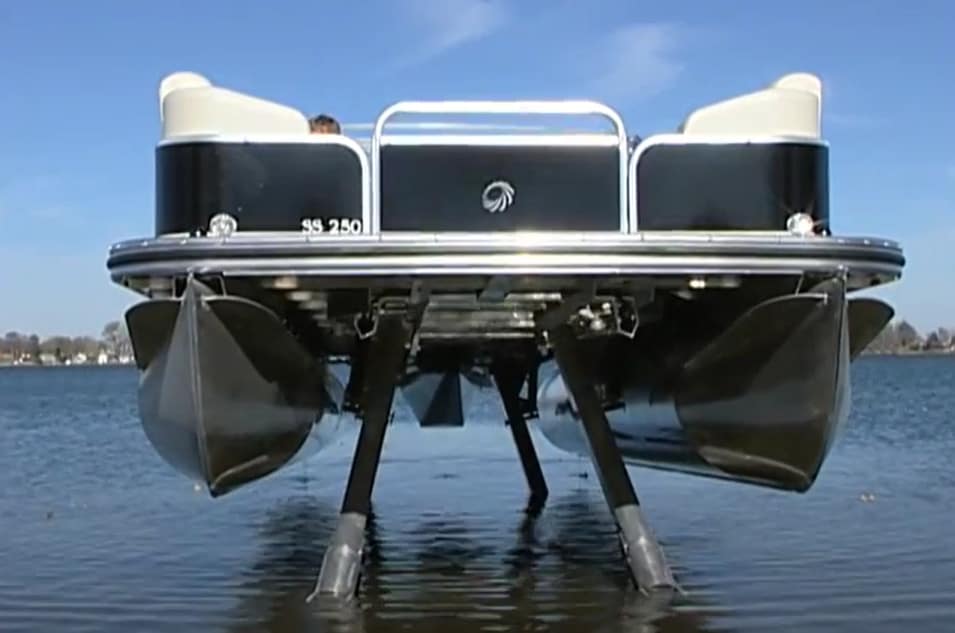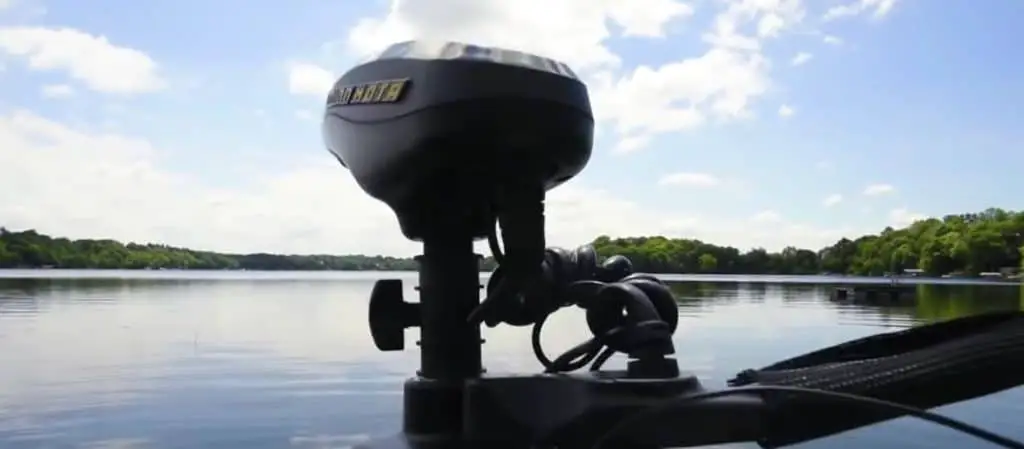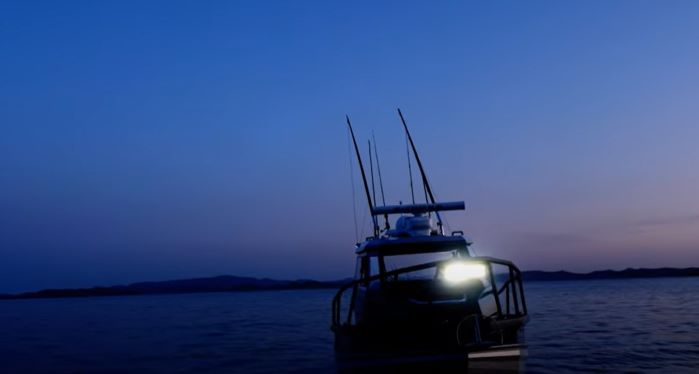Trailers are the most affordable, most accessible private pontoon storage and land transport option to date. But because there are lots of different choices, it can be tough to find the best pontoon trailer for your boat, budget, and preferences. And that’s where we come in.
How to Choose the Best Pontoon Trailer

Watercraft Weight
How heavy is your pontoon? A trailer’s gross vehicle weight rating or simply GVWR is the maximum weight that it can sustain. Ensuring that your watercraft falls within a trailer’s GVWR guarantees that the design won’t buckle under the heft of your pontoon or break down during transport and use.
As a general rule, you will want to consider the height and weight of everything you have on board aside from the weight of the watercraft itself. This means you need to know how much all of your gear, storage, and other accessories weigh. The same goes for the weight of your engine and the fuel. If you’ve got a big heavy boat, then a hydraulic pontoon trailer might be your best bet.
Number of Axles
Axles are the rods that hold the tires in place.
Single Axle
A single axle trailer is typically easier to maneuver, letting you get your trailer into tighter parking spaces if needed. And since single axle pontoon trailers are usually smaller in size, they require less fuel to tow.
Then of course, there’s the matter of cost. Since they’re smaller and have fewer tires, they’re easier to maintain and more affordable up front. But it’s not all rainbows and butterflies. The limited size also puts a cap on the maximum weight that these trailers can carry. And of course, since there are only two wheels, expect them to wear out more rapidly especially if you tend to throw on more weight to its load.
Multiple or Tandem Axle
A multiple or tandem axle trailer is basically a trailer with more than one set of tires. They’re bigger, bulkier, and built for heavier weights. The extra tires make these trailers more stable on long hauls. And of course, they have a much higher payload capacity, so if you’ve got a bigger pontoon, a tandem trailer is the way to go.
In general, used tandem axle trailers have much higher resale value than single axle trailers that depreciate pretty quickly. On the downside, a multiple axle trailer won’t have the same maneuverability as a single axle model, and neither will it come at the same budget friendly price.
Suspension
Leaf Spring
Easier to repair if ever they break down, but require slightly more routine maintenance. Between the two types, leaf spring systems provide the best stability on bumpy terrain.
Torsion Axles
They require much less maintenance than leaf spring suspension systems, but once they’re broken, then can be tough to fix.
Gliding On and Off
There are lots of different ways to achieve a seamless glide, and the most practical and affordable would be carpet.
Bunk Wrapping
This lets you cover up the trailer frame in a smoother, softer material that’s less abrasive and damaging. Carpet makes a wonderful choice, with most designs feature rubber backing that’s intended for marine use.
Bunk Caps
But since carpet can absorb some moisture, there are a few boat owners who try to steer clear of the material in fear that it might cause organism growth or corrosion over time. That’s where bunk caps come in. These plastic glides provide a smooth surface for your pontoon to glide over, and they’re much easier to keep dry.
Rollers
Finally, there are rollers. Designed like little wheels that roll underneath your pontoon to help it slide on the trailer, rollers make it especially easy to get your vessel on the frame. But because they can impose pressure on specific areas of the boat, they could leave dings and cosmetic damage.
Tires
Radial
These have a thicker tread all together, giving you better grip on the pavement. For long hauls, radial tires are often the best choice since they provide better control and lasting performance.
Bias-Ply
These tires feature a slightly narrower tread, and their walls tend to flex ever so slightly to the sides. This can impact stability on the road, making bias-ply better for shorter trips. On the upside, they’re far cheaper.
Frame Material
A trailer is only going to last as long as its frame allows. And then of course, there’s the consideration of gross axle weight rating. The GAWR tells you how much weight each axle can support, which also tells you what kind of material you should consider for its frame.
1. Aluminum
Lightweight and affordable, aluminum is the go-to for buyers who are concerned about fuel consumption. Pontoon owners who prefer saltwater trips can also reap the benefits of aluminum since its not too prone to corrosion. The downside however is that aluminum proves to be the most expensive choice.
2. Painted Steel
The main benefit to a painted steel trailer is that you can have it customized to any color you like. On the other hand, painted steel won’t do too well against saltwater, so they’re mainly reserved for freshwater boating.
3. Galvanized Steel
A coat of zinc applied to the surface of a steel trailer makes it a galvanized steel design. While they might be slightly more resilient against saltwater, you’re going to have to rinse off the residue with freshwater after every launch.
Brake
Most jurisdictions require a brake system for trailers that’s hooked to the inside of your car. These days, there are two main types of brake systems you can find on the market:
Electric
High quality electric brakes that are designed to resist moisture penetration are the best choice for pontoon owners with a budget. They hook to your car and can be controlled from inside your vehicle for added safety.
Surge
These work by slowly stopping the trailer as your vehicle slows down. If you’re carrying a heavy load, then you’re going to need to stop a pretty long way before the actual stopping point to give your trailer the time to adjust its brakes. And because they can’t be controlled from inside your car, they’re usually not a standalone braking system.
Lights
Overall, LED lights make the best choice for any trailer. Since they’re waterproof and rugged, LED lights provide sufficient illumination without risking any sort of damage to the internal wiring due to moisture exposure and salt during a saltwater launch.
Also consider getting some LED lights for your pontoon boat too.
Trailer Maintenance Tips
1. Renew The Zinc Coating
If you’re buying galvanized steel or even just a steel trailer, it helps to keep an eye on that zinc coating. Fortunately, you can buy cold galvanizing compound to keep your trailer’s frame protected against corrosion.
We recommend the Cold Galvanizing Compound by Rust-Oleum.
2. Grease up Moving Parts
Many of those moving parts will stiffen up over time, but that’s not something some grease can’t fix. After removing rust with galvanizing compound, slather on some marine grade waterproof grease to keep light fixtures free from saltwater damage and to add another layer of protection to the frame and its parts.
Try out the Silicone Paste/Waterproof Marine Grease by Mission Automotive.
3. Check The Tires
Before a trip - whether short or long - always make time to check the tires. The sidewall should have a sticker telling you the max PSI that your tires should be. A nifty digital tire inflator pump and gauge should get your tires to the right PSI before you set out on the road.
We like to keep the Fortem Digital Tire Inflator with us at all times.
Where to Buy a Pontoon Trailer
The best place to buy a pontoon boat trailer would be through a registered trailer dealer. If you bought your boat at a local pontoon dealership, they likely have a partner trailer dealer that they can refer you to. Never buy a trailer online without seeing it first!
While there are some pretty sweet deals on pontoon trailers on the web, the best way to tell if you’re buying the genuine article would be to see it in person. If you’re dealing with a manufacturer, schedule a visit to their showroom or warehouse to inspect their choices and find out whether their trailers really meet your standards.
The Best Pontoon Trailers

WFB Float On Trailer
Designed with carpeted two by fours, this trailer features a wide track that’s intended to make the entire pontoon towing experience more stable and safe. The model is available in both single and tandem axle options, and can also be purchased as a tritoon compatible frame.
Venture Pontoon Trailer Tandem Axle VPT 24-40
Built for the long haul, this ultra heavy duty center lift scissor frame can carry pontoons that fall within the larger end of the size spectrum. The ultra stable tandem axle structure also guarantees a hitch free ride even on the bumpiest of roads.
Wolverine Trailers All Pro 24 Bunk Style Pontoon Boat Trailer
Featuring a galvanized steel frame, this stable pontoon trailer touts the same durability as the Wolverine Trailers Crank Up. The strong 5x2 frame provides the ideal surface for weight distribution, keeping all areas of your boat sufficiently supported all throughout the ride.
A Pontoon in Tow
It’s about time you stopped paying for fees at the marina just to keep your pontoon in a slip. The best pontoon trailer lets you take your pontoon home for safekeeping, and even opens up the opportunity to take your watercraft to far off destinations. And besides, when you calculate the cost, all of those marina fees will add up to a trailer sooner or later, so you might as well buy one now.







